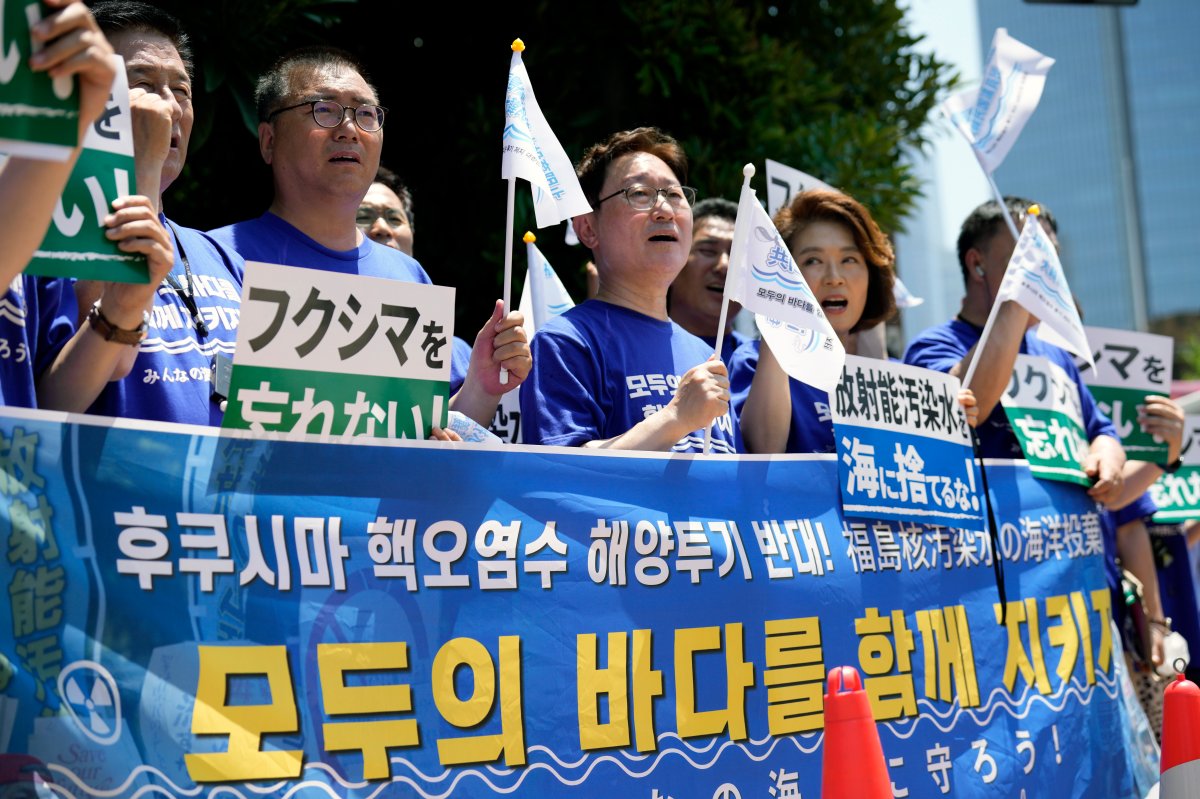A proposal to dump treated wastewater into the ocean from Fukushima nuclear power plant in Japan continues to face backlash, even as some caution there is no danger in doing so.

The Fukushima plant in northeastern Japan is moving forward with its plan to dump used water into the Pacific Ocean. The plant experienced a meltdown in March 2011 after a massive earthquake and following tsunami destroyed its cooling system, causing three reactors to melt down, releasing a large amount of radiation.
Water used to cool the reactor cores accumulated in about 1,000 tanks in the plant, and will reach their capacity by early 2024.
Japanese officials say the water needs to be released to prevent accidental leaks in case of another disaster and to continue with the plant’s decommissioning, and plan to release the water over decades through an undersea tunnel.
The water has been stored in tanks over the last decade as the plant devised exactly what to do with it, according to Jason Donev, a professor of physics at the University of Calgary who specializes in nuclear energy.
He said that a lot of the radioactivity of the water has been released by being stored in the tanks through decay, and in addition, the water will go through a filtration system called the Advanced Liquid Processing System, or ALPS.
“It is basically a really, really good filtration system,” Donev said. “That water is now safe. It’s fine.”
- Hurricane Helene claims lives of Georgia mother and her one-month-old twins
- Tropical Storm Milton forms in Gulf of Mexico, could intensify as a hurricane threatening Florida
- Imperial Oil to pay hefty fine for 2021 oil spill that sickened residents
- Northern lights set to shine in parts of Canada this weekend. Here’s where
Donev said that water from nuclear plants is dumped into bodies of water all the time around the world, so the practice isn’t new.
What is causing concern is that due to the meltdown, the water got contaminated in ways that are “abnormal,” Donev said.
There is concern over the presence of the isotope tritium, which is difficult to remove from water because it is chemically identical to the hydrogen that is already in water. But Donev said it is not harmful and there will be no impact on local marine life.

Get daily National news
Some scientists, though, say that the long-term impacts of exposure to the low radiation on marine life is unknown, and local fishing communities have fiercely protested the move over worries about safety and reputational damage.
“People have a certain fear,” Donev said.
“As soon as the word ‘radioactivity’ or ‘radioactive’ come into play, people immediately jump to a lot of scary things like cancer or mutations. But the amount of radiation we’re talking about here is so far below what would cause any problems like that.”
He compared the raise in radiation in the water to the amount of weight lost after shaving.
Concerns have led other countries to get involved in Japan’s disposal decision to make sure best practices are being put forward, including South Korea. A team of experts from the country recently visited the plant and were given a tour, and will evaluate data on the amount of radiation in the water being dumped.
On Monday, dozens of protesters, including South Korean lawmakers and activists, rallied outside the Prime Minister’s Office, holding banners saying, “Do not dump radioactive contaminated water into the sea.”

Ju Cheol Hyeon, a South Korean lawmaker, said Japan should apologize to the world for releasing “the Fukushima disaster high-level nuclear waste into the sea,” and demanded an immediate withdrawal of the plan.
“We cannot either understand or remain silent about the situation in which Japan fails to dispose of the nuclear waste within its own territory and takes the illegal and unethical action of discharging (the water) into the sea,” he said.
The Japanese government has defended the neutrality of a report by the International Atomic Energy Agency on the wastewater release plan that concluded it meets international safety standards, denying allegations that Japan pressured the agency into publishing favorable results.
Economy and Industry Minister Yasutoshi Nishimura visited the Fukushima Daiichi nuclear plant Monday morning to see key equipment, including an emergency shutdown system, days after the Japanese regulatory authority granted a permit to the plant’s operator for the release and the IAEA said the environmental impact would be negligible.
— with files from The Associated Press.











Comments